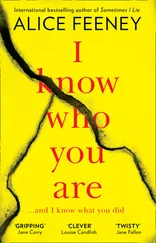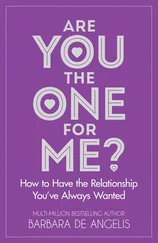“Govoritye po-russki?” You speak Russian?
“A little,” I said.
I tried to reconcile the face before me with the girl pictured in Jenny’s book. The young Svetlana had been fuller in the face, and her eyes were brighter, more hopeful. She had a freshly scrubbed quality. This woman was narrow and gaunt, and her eyes betrayed nothing. She was beautiful in a damaged way. I stood in front of her, waiting for her to stand. But she pulled a pack of Marlboro Lights from her bag and lit a cigarette. She sucked in the smoke with vehemence, then raked her head and squinted at me. As she cataloged my features, I sat down beside her. I was careful not to sit too close; the foot of space between us was charged, tense.
“It is surprising,” she said in English.
“What?”
“You are sympathetic girl.”
“Simpatichnaya?” I said.
“Da.”
“I think you mean pretty,” I said. “Not sympathetic. Sympathetic means kind.”
“You are not kind?” Her manner was abrasive.
“No. I mean, I am. I like to think so anyway. I try to be. But simpatichnaya isn’t ‘sympathetic’ in English. ‘Sympathetic’ means ‘kind.’ Simpatichnaya is like the English for ‘pretty.’ Or ‘cute.’”
“ Da, okay, pretty. I did not think you would be such pretty. I have seen picture, when you were young girl. You were not so—”
I cut her off. “That was a long time ago.” My awkward stage ended when I was about sixteen.
“Nu, da . How do you say? ‘Ancient history.’ But you were very plain,” she said. She seemed determined to get a rise out of me. “Although you are not fat. I thought Americans were fat.”
“Some of them are,” I said.
“You are not the potato?”
“What potato?”
“Potato on couch.” She blew smoke in my face.
“Couch potato,” I said. “No, I’m not.”
“But most people in your country are the couch potatoes. Lazy, fat ...”
“Not as fat as Yeltsin,” I said.
“Boris Nikolayevich,” she said, “is the special problem.”
I wasn’t ready to drop the argument. “There are fat people everywhere. It has nothing to do with nationality. That lady isn’t exactly thin,” I said of a woman walking toward us with her dog.
The dog was scruffy and black, some kind of poodle mix, I thought. “Malchik?” Svetlana said to the woman holding the leash. A boy? It was strange to discover that Russians also asked each other the sex of their dogs. It was a practical question. Most dogs weren’t neutered, so vigilant owners needed to keep the intact males away from one another.
“Devochka,” the woman replied. A girl.
The woman had a stout peasant build and a weary face. She might have been forty, maybe older. As Svetlana leaned over to pet her dog, the woman offered me a tentative smile. It was obvious I was foreign, but she didn’t treat me as a threat. I smiled back.
“Zdravstvuite,” I said. Hello. Her head bobbed like a buoy.
The dog rolled over to let Svetlana rub her belly. I missed Pip. He was neurotic but comforting. Whenever I cried, he licked my face, and although I know he was drawn to the salt of my tears, something soulful in his eyes suggested genuine concern. He would lie next to me until I was okay. He lived until my first year of college. When I came home for Thanksgiving that year, the house seemed terribly empty without him. I kept hearing the ghostly echo of his toenails on the floor. My mother kept saying she was going to get another dog.
“Zaichik,” cooed Svetlana as she scratched the dog under its chin. Zaichik means “bunny,” and I realized that it must be a term of endearment. Like honey bunny. The dialogues we had practiced in Russian class had not prepared me for actual conversations. What did you do on Saturday? our Russian professor would ask, stretching his words out like Silly Putty so that we could understand. We didn’t know how to say, I drank too much at a bad party, but we could say, I gathered mushrooms or I took a walk in the park. Our textbooks implied that Russians spent a lot of time gathering mushrooms and walking in parks.
“You like the dogs?” Svetlana said to me as the woman walked away.
“I love dogs,” I said.
“Ya tozhe.” Me, too. “I have the dog. His name is Pushkin.”
“Like the poet,” I said.
“You know Pushkin? I thought Americans were not so cultured.”
“I was an English major,” I said. “I’ve read a lot of poetry.”
The truth is, I’d read only one Pushkin poem: “Ya Vas Lubil.” I Loved You Once. We had to memorize it in first-year Russian. “I loved you once: perhaps that love has yet / To die down thoroughly within my soul.” Apparently no English translation does him justice.
“The church where Pushkin married is here in center of Moscow,” she said. Pushkin was from St. Petersburg, but Moscow had its share of monuments to him. A Metro station bore his name.
“Your English is good,” I said. It was better than her letter suggested.
“I take the mistakes,” she said. “Nu, spasibo.” Thank you.
“You’re welcome,” I said. Then I said it again in Russian.
She deliberated, then said, “In Russian your accent sounds like you are from Gruziya, you know?”
“Georgia,” I said. I knew that this was an insult. Georgians and other people from the Caucasus were looked down upon.
“Da.”
“Like Stalin?” I wanted to remind her that someone from Georgia had once been in charge of the whole Soviet Union, even if it was with devastating results.
“Da, tochno.” Yes, exactly. “You sound like Stalin.” She laughed. Her laugh was a girlish confection, the sort of giggle induced by intense tickling.
On the pond, ducks made serene circles, and on the other side a young couple walked hand in hand. The man wore a blue Adidas tracksuit. I could hear him coaxing, “Pochemu nyet?” Why not? I wondered if he was trying to get her into bed.
“In winter this is for the skating,” Sveta said. “The pond is frozen, the boys play hockey.”
“Must be nice,” I said.
“You will stay for winter?”
“Maybe,” I said. “If I can renew my visa.”
“You are married?”
“No,” I said, shocked by the question. “I’m only twenty-two. Are you married?”
“Divorced,” she said. Later I’d learn that many Russian women my age were divorced. They married at eighteen or nineteen, and the unions dissolved a few years later. To be unmarried at my age was to be an old maid.
“I have something to show you,” I said. I pulled Jenny’s book out of my bag.
Svetlana took the book and held it on her lap gently, as if it might break. With a sharp intake of breath, she extended a finger and traced the contours of Jenny’s face. And then her other hand moved over her own youthful image. She fell into a sort of reverie as her fingers drew a frame around the two girls in the photograph. “She was first American I met,” she said softly. “At first I was afraid, ponimayesh? ”
“I understand,” I said.
“Americans were supposed to be danger. But she was ochen ... charming.”
“Yes,” I said. “Very charming.”
“One night,” Svetlana said, “I was permitted to stay with her in hotel. You cannot imagine how magical this was for me. A hotel! With the American! She removed her dress, and before she took the gown for sleeping—”
“Nightgown,” I said.
“Nightgown, yes—before she put on the nightgown, I look at her and I think, ‘This is American girl in her underwear.’ Do you know she had flowers on her underwear? The little blue flowers.”
Читать дальше












